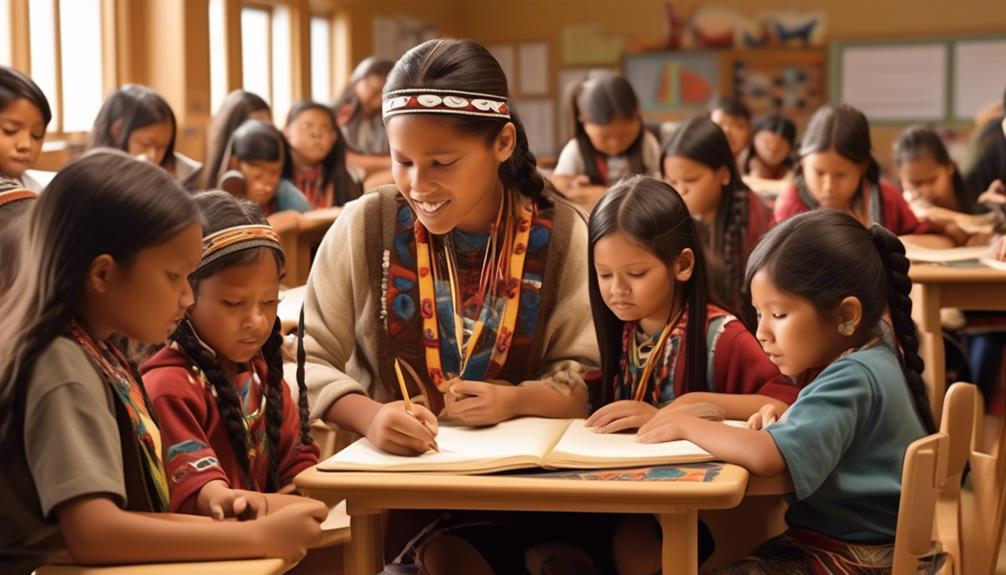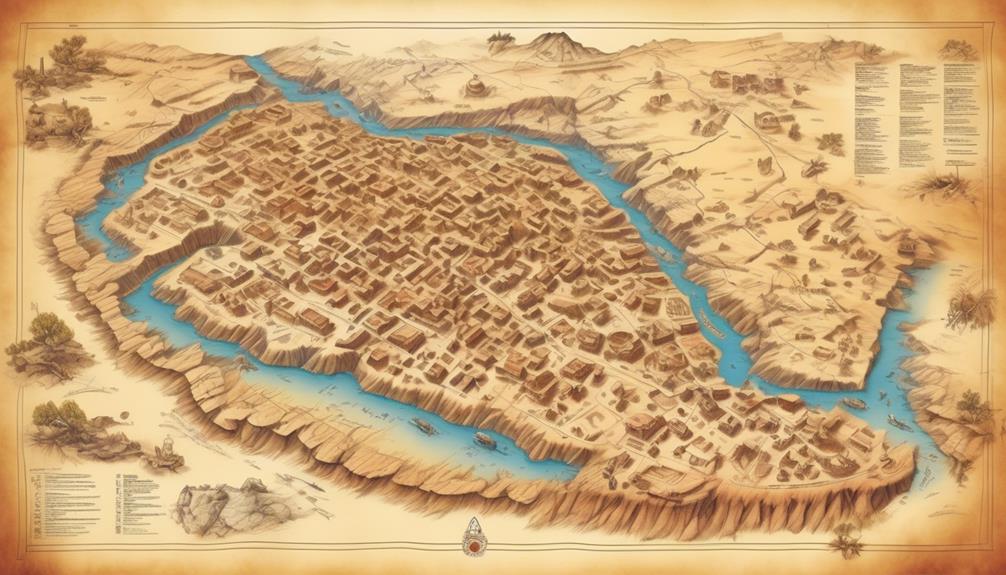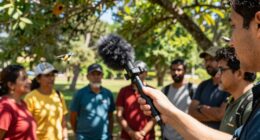In today’s fast-paced and interconnected world, it is essential to preserve and revitalize Indigenous languages and cultures that are at risk due to the dominant influence of globalization and uniformity.
As we navigate the complexities of language, culture, and heritage in education and employment, it becomes increasingly evident that the integration of Indigenous knowledge systems is not only a moral imperative but also a strategic investment in the future.
The intersection of language, culture, and heritage is a multifaceted lens through which we can address issues of identity, community empowerment, and economic development.
Join us as we explore the transformative potential of elevating Indigenous language skills, and the profound impact it can have on shaping more inclusive, equitable, and dynamic educational and employment landscapes.
Key Takeaways
- Indigenous languages play a critical role in preserving cultural heritage and traditional knowledge.
- Integrating Indigenous languages in educational settings enriches the learning experience and fosters pride, identity, understanding, and respect among students.
- Fostering linguistic diversity in the workplace promotes inclusivity, respect, and enhances communication.
- Empowering Indigenous communities through language revitalization efforts requires collective effort, supports cultural preservation, and contributes to the revitalization of Indigenous cultures and heritage.
Significance of Indigenous Language Preservation
Every Indigenous language holds immeasurable significance in preserving and passing down cultural heritage and traditional knowledge. As educators, we recognize the pivotal role of Indigenous languages in shaping cultural identity and fostering a deep sense of belonging within Native American communities.
The erasure of Indigenous languages, driven by government-endorsed assimilation programs, has resulted in lasting intergenerational trauma. It's deeply troubling that approximately one Indigenous language dies every two weeks due to the historical impact of assimilation programs.
To address this critical issue, teacher education must prioritize the preservation and revitalization of Indigenous languages. By integrating Indigenous language and culture programs into education, we can effectively preserve valuable cultural and historical perspectives.
Furthermore, decolonizing learning methodologies can play a pivotal role in integrating traditional Indigenous beliefs into curriculums, ensuring that Indigenous languages are celebrated and upheld. Embracing Indigenous Montessori Education provides a transformative approach, nurturing a strong sense of identity and belonging among Indigenous students.
Integrating Indigenous Languages in Educational Settings
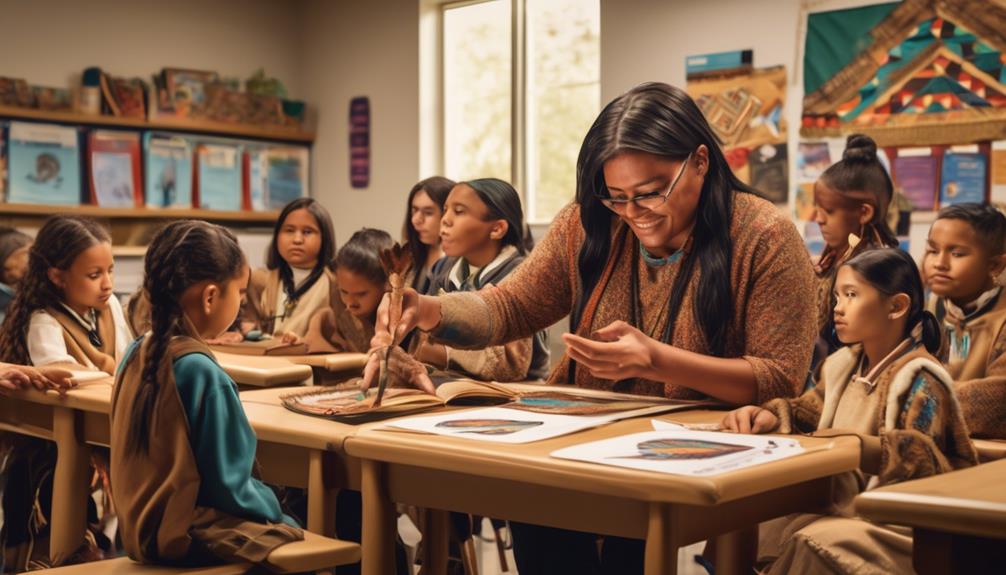
Integrating Indigenous languages into educational settings enriches the learning experience and preserves cultural heritage for future generations. It fosters a sense of pride and identity among Indigenous students and promotes understanding and respect among non-Indigenous students.
Here are three key ways in which Indigenous languages can be integrated into educational settings:
- Teacher Training: Providing professional development opportunities for educators to learn about Indigenous languages, cultures, and teaching methods. This equips teachers with the knowledge and skills needed to effectively integrate Indigenous languages into their classrooms.
- Curriculum Integration: Developing curriculum materials that incorporate Indigenous languages across various subjects. This helps students learn the language in context, making it more relevant and meaningful.
- Community Partnerships: Collaborating with Indigenous communities to bring native speakers into schools, organizing cultural events, and creating language immersion programs. This creates authentic learning experiences and strengthens the connection between education and the preservation of Indigenous languages.
Fostering Linguistic Diversity in the Workplace
Fostering linguistic diversity in the workplace promotes inclusivity and respect among employees, enhancing communication and validating their cultural backgrounds. Embracing linguistic diversity not only enriches the workplace environment but also contributes to a stronger sense of belonging and community among employees. By encouraging the use of heritage languages, we validate the unique linguistic and cultural backgrounds of our team members, fostering an environment where everyone feels valued and respected.
Integrating language and culture in the workplace enhances communication and understanding among employees. This not only facilitates better collaboration but also creates a supportive and inclusive atmosphere. Providing support for language learning and maintenance in the workplace is essential for promoting overall employee well-being and engagement. It shows that we recognize the importance of linguistic diversity and are committed to creating an environment where everyone can thrive.
Empowering Indigenous Communities Through Language Revitalization
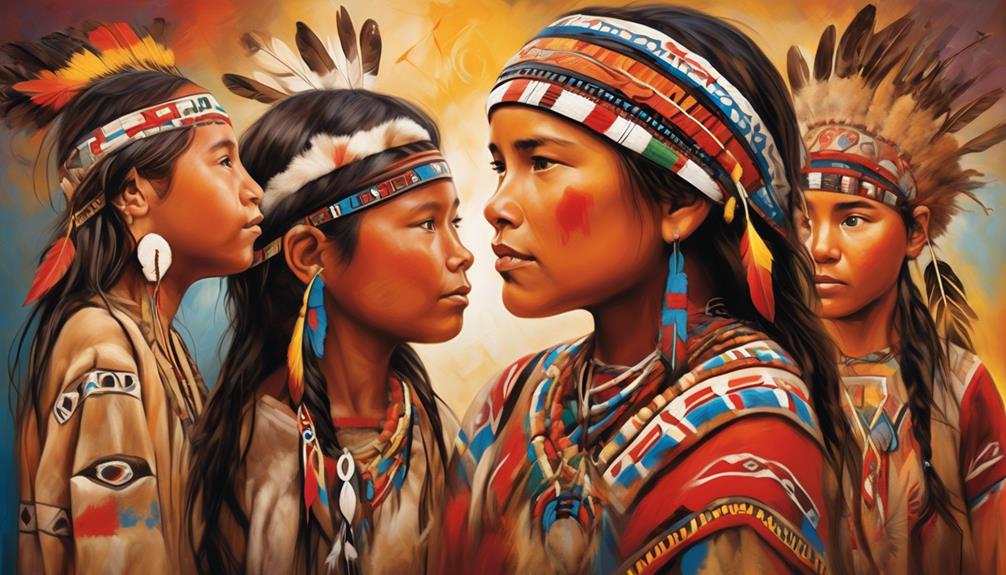
Acknowledging the historical erasure of Indigenous languages and cultures, we must now focus on empowering Indigenous communities through language revitalization. This is crucial for preserving Indigenous language skills, culture, and heritage.
To achieve this, we can:
- Support Indigenous-led initiatives: By backing Indigenous language programs and educational opportunities, we can empower communities to take ownership of language revitalization efforts.
- Integrate Indigenous knowledge into education: Incorporating Indigenous languages, ideas, and practices into mainstream education, such as through the Montessori method, can help preserve and revitalize Indigenous languages and cultures.
- Engage non-Indigenous allies: Non-Indigenous individuals can play a vital role in empowering Indigenous communities by actively promoting and sharing Indigenous culture and language in classrooms, families, and communities.
Empowering Indigenous communities through language revitalization requires collective effort and commitment. It not only helps preserve linguistic diversity but also contributes to the revitalization of Indigenous cultures and heritage. By supporting Indigenous-led initiatives, integrating Indigenous knowledge into education, and engaging non-Indigenous allies, we can work towards empowering Indigenous communities and ensuring the survival of their languages for generations to come.
Impact of Indigenous Language Skills on Employment Opportunities
Indigenous language skills significantly impact employment opportunities in fields focusing on Indigenous communities. Proficiency in Indigenous languages opens doors to roles as translators, interpreters, or cultural liaisons across various sectors. Understanding these languages is crucial for careers in heritage preservation, cultural education, and community development.
Moreover, proficiency in Indigenous languages is increasingly essential for roles in research, academia, and advocacy, where engagement with Indigenous communities is paramount. In addition, many government, non-profit organizations, and businesses working with Indigenous populations seek individuals with Indigenous language skills. These skills not only facilitate effective communication but also demonstrate a deep respect for Indigenous culture and heritage, which is highly valued in these settings.
Frequently Asked Questions
Why Is It Important to Integrate Indigenous Knowledge When You Teach?
When we teach, integrating indigenous knowledge is important because it promotes:
- Cultural immersion
- Community involvement
- Linguistic diversity
- Historical significance
It enriches our educational approach, honoring diverse perspectives and fostering understanding. By incorporating indigenous knowledge, we create a more inclusive and respectful environment that validates cultural heritage. This empowers our students, both indigenous and non-indigenous, and contributes to their overall well-being and academic achievement.
How Do You Integrate Culture in Language Teaching?
We immerse students in cultural experiences, revitalizing language through heritage preservation. Engaging with communities and elders, we create meaningful connections to our language's roots.
By prioritizing cultural integration, we embody our commitment to preserving and passing on traditions. Our teaching practices honor the richness of our heritage, fostering a deep understanding of language and culture.
We actively encourage a sense of belonging and connection to the world around us.
How Can We Promote Indigenous Languages?
We promote indigenous languages through language revitalization, community engagement, digital resources, and intergenerational learning.
By involving the community, creating digital tools, and fostering learning across generations, we ensure the preservation and growth of indigenous languages.
Our approach prioritizes the active involvement of the community, utilizes modern technology, and emphasizes the transfer of knowledge between generations, all crucial elements in promoting and preserving indigenous languages.
Why Are Indigenous Languages Important to the Survival of Indigenous Cultures?
Preserving traditions, revitalizing communities, connecting generations, and empowering identities are why indigenous languages are vital to the survival of indigenous cultures. They encapsulate our history, wisdom, and way of life. Losing them means losing a part of ourselves.
Revitalizing these languages fosters cultural pride, strengthens intergenerational bonds, and reclaims our knowledge systems. It's about preserving our unique identity and ensuring a vibrant future for our people.
Conclusion
In conclusion, it's crucial for us to prioritize the preservation and revitalization of Indigenous languages and cultures in education and employment.
Did you know that a study found that Indigenous language speakers have higher rates of academic achievement and are more likely to pursue higher education?
By integrating Indigenous languages and perspectives, we can create more inclusive and diverse learning environments, leading to greater success for Indigenous communities.
Let's continue to support and uplift Indigenous language skills for a brighter future.
